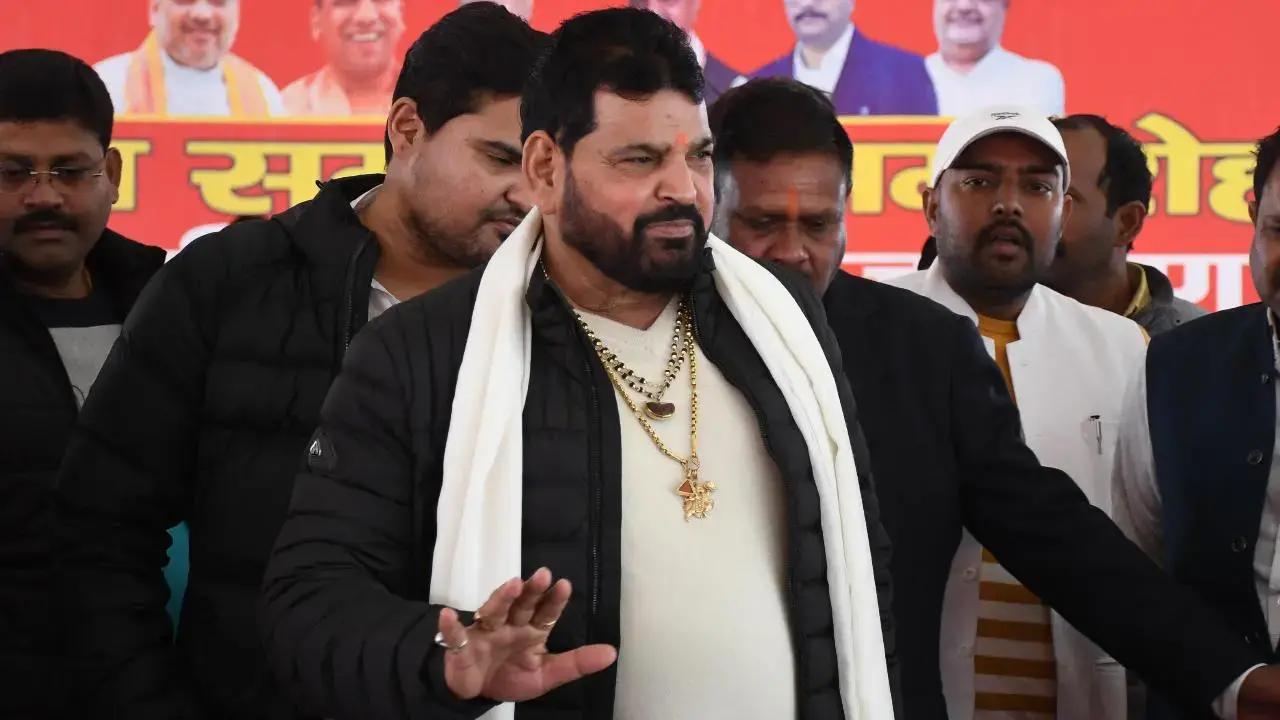BJP leader Brij Bhushan Sharan Singh has voiced support for PM Modi’s ‘One Nation, One Election’ proposal, which envisions simultaneous elections for the Lok Sabha and state assemblies. Singh believes the initiative, in discussion for years, could soon be a reality under Modi's leadership.

File Pic
Key Highlights
- BJP leader Brij Bhushan Singh backs ‘One Nation, One Election’ idea
- PM Modi says it will strengthen democracy, optimise resources
- Congress opposes, calling coordinated polls “impossible”
Bharatiya Janata Party (BJP) leader Brij Bhushan Sharan Singh has shown his support for the ‘One Nation, One Election’ proposal, an idea that has gained momentum under Prime Minister Narendra Modi’s government. He stated that the call for implementing this framework has been ongoing for some time and suggested that the nation could finally see it materialise with Modi's leadership.
ADVERTISEMENT
“We welcome the idea of ‘One Nation, One Election.’ There has been a demand for its implementation for a considerable period, and we are confident that it will come to fruition under PM Modi's leadership,” Singh shared in an interview with ANI. He added that the BJP is committed to gaining the necessary support to implement the proposal across the nation.
The idea of ‘One Nation, One Election’ envisions simultaneous elections for the Lok Sabha and state assemblies, which proponents believe could lead to a streamlined electoral process and reduced costs. On Thursday, during a speech in Kevadia, Gujarat, PM Modi reaffirmed the government's efforts toward achieving this goal, stressing that it could bolster democracy, optimise resource utilisation, and expedite the country’s development.
“We are now progressing towards ‘One Nation, One Election’—an initiative aimed at strengthening India’s democracy,” said the Prime Minister, while commemorating the birth anniversary of Sardar Vallabhbhai Patel. Modi used the occasion to honour Patel’s contributions to India’s unity and integrity and spoke of the government’s commitment to national unity in every endeavour.
Referring to India's journey towards a Uniform Civil Code (UCC), PM Modi noted that this movement aligns with the government’s dedication to ensuring equality and coherence in the civil legal framework, advocating for a secular and inclusive approach for all citizens.
The proposal, however, has met with opposition. Congress President Mallikarjun Kharge dismissed the ‘One Nation, One Election’ idea as “impossible,” stating that it would require extensive discussions and consensus within Parliament. According to Kharge, achieving such a monumental shift would be impractical without first securing the confidence and agreement of all political parties and stakeholders. “What PM Modi has said will not transpire easily,” he explained. “When this issue is raised in Parliament, it will require inclusive discussions. Implementing ‘One Nation, One Election’ is, quite frankly, impossible.”
Kharge’s sentiments reflect the Congress Party’s view that such a system could be challenging to execute given the diversity and regional interests present across India. The party has expressed concerns that it would require significant constitutional amendments, a change in election cycles, and assurances that local issues are not overlooked in the broader national agenda.
The ‘One Nation, One Election’ proposal has sparked considerable debate in recent years, drawing perspectives from constitutional experts, economists, and political analysts alike. Advocates argue that it could save time and financial resources, allowing governments to focus on governance over campaigning. Opponents, however, contend that implementing it would necessitate a level of synchronisation among India’s states and union territories that may be challenging to achieve in practice.
Despite the divergent views, the Prime Minister’s recent endorsement of the proposal has reignited national conversation on its feasibility. The government’s next steps may include forming committees to explore how the policy could be introduced and gain acceptance across political lines.
As of now, the ‘One Nation, One Election’ proposal continues to highlight both the vision of a unified India and the complexities of implementing policies on a national scale. Whether the concept can bridge these challenges will ultimately rest on parliamentary discourse and the engagement of India’s diverse political spectrum.
(With inputs from ANI)
 Subscribe today by clicking the link and stay updated with the latest news!" Click here!
Subscribe today by clicking the link and stay updated with the latest news!" Click here!







